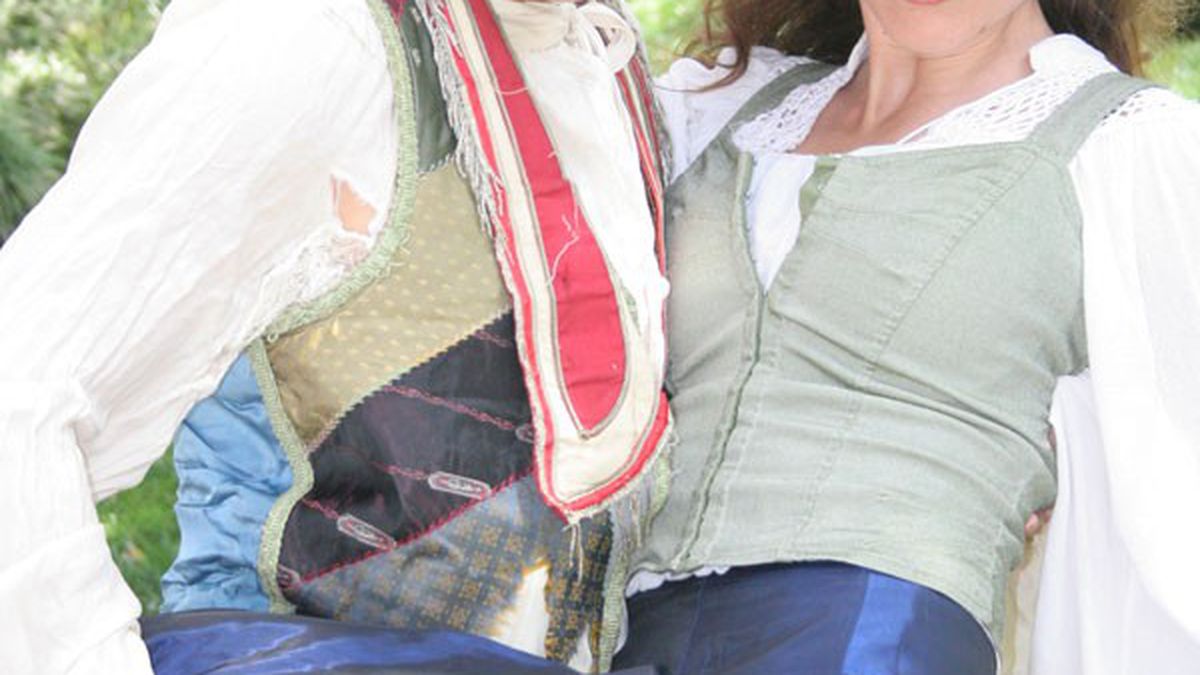Women never had it easy in the plays of William Shakespeare. In
Romeo and Juliet, the lead female chooses to hide in a morgue
for three days rather than enter an arranged marriage with slimy Paris.
In A Midsummer Night’s Dream, Helena follows her love interest
Demetrius into a forest, offering to be his “spaniel.” Women are beaten
at whim, betrothed in early adolescence, and driven, in desperation, to
drown themselves. Considering the sordid fate of Juliet or Ophelia in
Hamlet, Shakespeare’s most famously unfeminist play, The
Taming of the Shrew, should seem like lighter fare. In this case a
beautiful but hot-headed woman is “tamed” by the husband who married
her in order to snag half her father’s estate. She eventually
acquiesces, and even takes a shine to her new mate, which makes
everything seem, well, kind of okay.
Yet, of all the plays in Shakespeare’s oeuvre, this is the one that
riled up the Andrea Dworkins of the world. It’s not just the sting of
the word “shrew”; it’s the idea of predestination supplanting free
will. In this play, Katherine’s spirit has to break so that she can
conform to societal norms. Once “tamed,” she seems more damaged and
vulnerable than other Shakespearian women — even the ones who
chose death over complacency.
It doesn’t have to be that way, says Erin Merritt, who directed a
new Woman’s Will production of Taming of the Shrew with an
all-female cast. In Merritt’s low-tech, high-concept version, Katharine
(played by Kate Jopson) and Petruchio (El Beh) seem extremely well
matched, aesthetically and temperamentally. Recent UC Berkeley grad
Jopson is so pretty and willowy that it’s difficult to imagine her as
the brat that everyone carps about. But it’s Beh who gives the play its
powerful sex vibe, besting all the other characters, juicing all the
innuendoes, and playing Petruchio as a lovable pain in the ass. Also a
Berkeley grad, Beh takes great pleasure in Shakespeare’s language,
intoning lines in a rumbly baritone and drawing attention to the sexual
puns (What, with my tongue in your tail?). Jopson’s Katherine
appears to fall for her long before the protracted game of
bait-and-switch that starts after their wedding night (which is
actually pretty funny in this version). The infectious Beryl Baker (as
Bianca’s suitor Hortensio) and Annamarie MacLeod (playing the gossipy
servant Biondello) round out this production.
Contemporary versions of Taming of the Shrew tend to ramp up
the sexual tension: The spats between Richard Burton and Elizabeth
Taylor were really just one long flirtation, and the “taming” part
seemed like an afterthought. Merritt took that idea a step further by
presenting a butch Petruchio and a femme Katharine, who both seem
progressive in their own right: He’s skeptical of marriage as an
institution; she’s struggling to assert her will in a patriarchal
society. Thus, the two keep jockeying for position even after she
accepts the marriage. Pretending to do right by his new wife, Petruchio
finds a way to deny her every creature comfort and basic necessity
— he sends back her meals because the meat is too burnt, and
won’t let her sleep because the bed is too rumpled. But sleep
deprivation and low blood sugar aren’t enough to domesticate Katharine,
who remains peppery while figuring out a way to survive. She accedes to
her husband’s whims but rolls her eyes at the audience, as though to
let us in on the joke. Ultimately, the idea of gender equality outpaces
the theme of sexual chemistry, making this Shrew a little more
heavy-handed than it needs to be. Still, it’s an interesting
reinterpretation of the source material. Neither Katharine nor
Petruchio gets “tamed,” but they do live happily ever after. That’s a
fitting dénouement, given that both were shrews from the
beginning.
However edgy this Woman’s Will production, it could never out-edge
Four Larks Theatre’s adaptation of The Master & Margarita,
playing at the Ghost Town Gallery. Based on Mikhail Bulgakov’s sardonic
1967 novel, in which the devil pays a surprise visit to the Soviet
Union, it’s a bizarre, disorienting, and supremely wonderful play. Four
Larks set it up so that audience members follow the action through
three chambers inan industrial warehouse, where skeletons and gothic
birch trees decorate the walls, characters pop through trap doors, and
a novelist lies naked in a bathtub, covered in paper.
Four Larks hews to a vaudevillian style of production, which allows
each cast member to show the full breadth of his abilities: The poet
Ivan (played by Alessandro Rumie) spends most of the show quietly
painting a wall, while Koroviev (pianist Mat Sweeney), Strauss
(clarinetist Ellen Warkentine), and Schumann (Danny Echevarria) bang
away at their instruments. Four Larks uses music to interject, comment
on, and sublimate the narrative, requiring all the actors to sing
beautiful multipart harmonies. The Master & Margarita never
quite becomes a coherent story, but that doesn’t matter because the
artistry is sublime.












